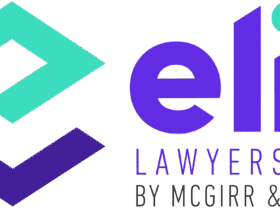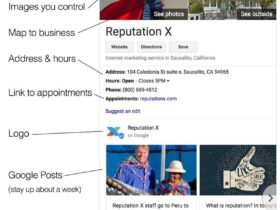Professionals work hard to build their reputations and often rely in large part on word of mouth to grow their clientele. Understandably, many have concerns about negative or dishonest reviews made about them online. These ratings and reviews are often anonymous and take just a few moments to create, yet they can have a lasting negative impact on a person’s business. The recent decision of Zoutman v. Graham illustrates the risk that online comments pose, in a case where a medical doctor sued for defamation after discovering a series of untruthful reviews.
Family of Deceased Patient Target Doctor Who Gave Evidence in Medical Malpractice Case
Following the death of a patient, the patient’s estate and family brought a medical negligence case against the attending physician. The Plaintiff Doctor in the case at hand specialized in infectious diseases and acted as an expert in that case. As part of his testimony, he provided an opinion on the patient’s treatment and gave evidence that the patient’s physician was not negligent in providing care.
Following the dismissal of the medical malpractice action, the Plaintiff became aware of a number of derogatory comments posted about him on the doctor rating website RateMDs.com. The postings gave the Plaintiff low ratings on his helpfulness and knowledge and left the impression the Doctor could not be trusted. The posts also called the Doctor “arrogant”, “thin-skinned”, “delusional”, “a threat to patient safety”, and commented on his physical appearance.
The brother of the deceased patient was present in court during the negligence action when the Plaintiff provided testimony. After the trial, the brother admitted to posting the comments on the Plaintiff’s profile despite never having been a patient of the Plaintiff. The terms of use for RateMDs.com require that only actual patients should provide reviews of doctors. The Plaintiff asked the brother to remove his postings and when he declined to do so, the Plaintiff sued the Defendant for defamation.
Defendant’s Anti-SLAPP Claim Dismissed
The Plaintiff’s summary judgement motion was heard together with an anti-SLAPP motion brought by the Defendant. The anti-SLAPP motion sought to dismiss the defamation action on the basis that the statements made on the Doctor’s profile were matters within the public interest. The Court dismissed the anti-SLAPP motion due to delay, but still considered the merits of the motion.
For the anti-SLAPP motion to succeed, the Court recognized that the Defendant had to satisfy that:
- (a) the proceeding arose from an expression made by him, and
- (b) the expression relates to a matter of public interest.
As the Defendant denied authoring ten of the twelve statements that were attributed to him, his motion could not have succeeded. Also, the harm to the Plaintiff arising from the statements was serious enough that the public interest permitting the action to continue outweighed any public interest in protecting the Defendant’s expression. On appeal, the Court agreed with the motion judge’s decision regarding the anti-SLAPP motion and accepted that the public interest requirement had not been met.
The motions judge accepted that the postings were defamatory. The Court had no doubt that the defendant’s statements would lower the Doctor’s reputation and were both personally and professionally degrading. As such, the Court granted the Plaintiff’s summary judgement application. The Defendant appealed the decision.
Reviews Posted to Websites may Constitute “Publishing” Information
On appeal, the Court considered the Supreme Court of Canada’s decision in Grant v. Torstar Corp, noting that a defamation claim requires three elements:
- That the defendant made a defamatory statement, in the sense that the impugned words would tend to lower the plaintiff’s reputation in the eyes of a reasonable person;
- That the words referred to the plaintiff; and
- That the words were communicated to at least one person other than the plaintiff.
The Defendant alleged that summary judgement should not have been granted. First, he argued that the Plaintiff failed to prove that the statements were “published”. It was argued that material posted on the internet is not deemed to be published, while also raising the suggestion that there was no evidence anyone other than the Plaintiff and his legal counsel had viewed the postings.
The motions judge did not accept the Defendant’s denial of authorship of some of the postings. At least one post the Defendant denied writing was virtually identical to one he admitted authoring, while others emanated from identical IP addresses. Justice Mew had no doubt the Defendant was the common author of all twelve statements.
As well, it is not necessary for the plaintiff in every defamation case to prove that the information complained of is brought to the actual knowledge of a third person. Instead, it will be sufficient if facts are established from which it can be inferred that a third party had viewed the information. In this case, there was an indication that at least one other person had viewed the Plaintiff’s RateMDs.com profile.
After looking at the totality of the circumstances and recognizing the prominence of RateMDs.com and other rating websites which the public use for choosing physicians, the motions judge determined that the Defendant had published the information, and the Court of Appeal found no error in that finding.
Online Postings can Result in Damages
The Defendant acted out of malice when making the online postings and this restricted the possibility of advancing a defence of fair comment. The Court of Appeal upheld the original award of $50,000.
Businesses and professionals take reviews seriously as there is a real chance they can influence the public, both positively and negatively. Comments that go beyond being unkind and lower an individual’s reputation can be subject to a defamation claim for damages.
The lawyers at Milosevic & Associates in Toronto are skilled at providing strategic litigation advice across complex commercial matters including defamation claims. Our team has extensive experience advocating for our clients’ rights. To learn how we can help you call us at 416-916-1387 or contact us online to schedule a consultation.













